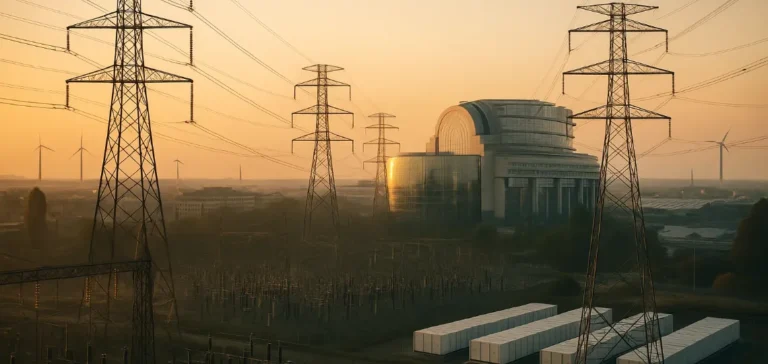The European Parliament adopted two non-binding texts urging the European Commission to revitalise electricity infrastructure and accelerate the implementation of the Clean Industrial Deal. These resolutions aim to enhance storage capacities, energy flexibility, and reduce dependence on fossil fuel imports.
Deployment of energy infrastructure
In the first document entitled Electricity Grids: the backbone of the EU energy system, Members of the European Parliament (MEPs) highlight the urgent need to invest in modernising energy infrastructure. According to this report, the completion of the integration of the European energy market could generate annual savings of €40 billion ($46bn). However, the document also specifies that investments of €584 billion ($671bn) will be required by 2030 to achieve these objectives.
This report urges the European Commission to accelerate the adoption of an ambitious action plan for energy grids, notably by significantly increasing cross-border transmission capacities. The Commission is expected to present a legislative package dedicated to European grids by the end of 2025.
Priority to energy flexibility
The second resolution calls for the swift implementation of the Clean Industrial Deal. It notably highlights the necessity of a European strategy for energy flexibility, involving the massive deployment of hybrid renewable energy systems, battery energy storage, and demand-side flexibility.
Arthur Daemers, senior policy advisor at SolarPower Europe, stated that these measures would allow the continent “to increase battery storage capacity tenfold within five years.” According to him, this would reduce volatility on energy markets, facilitate industrial decarbonisation through renewables, and enhance Europe’s energy security.
Accelerating green industrialisation
Furthermore, MEPs also welcomed the establishment of the Industrial Decarbonisation Bank, expected to mobilise around €100 billion ($115bn) in financing to support the green industrial transition. Tom Berendsen, the MEP leading this initiative, emphasised that “European industry faces significant challenges,” stressing the urgency to quickly move “from strategy to concrete actions and policy implementation.”
Berendsen underlined the importance of a strong industrial base, essential for ensuring Europe’s competitiveness and strategic autonomy. He stated: “The Clean Industrial Deal represents a crucial step, but time is running out.”






















